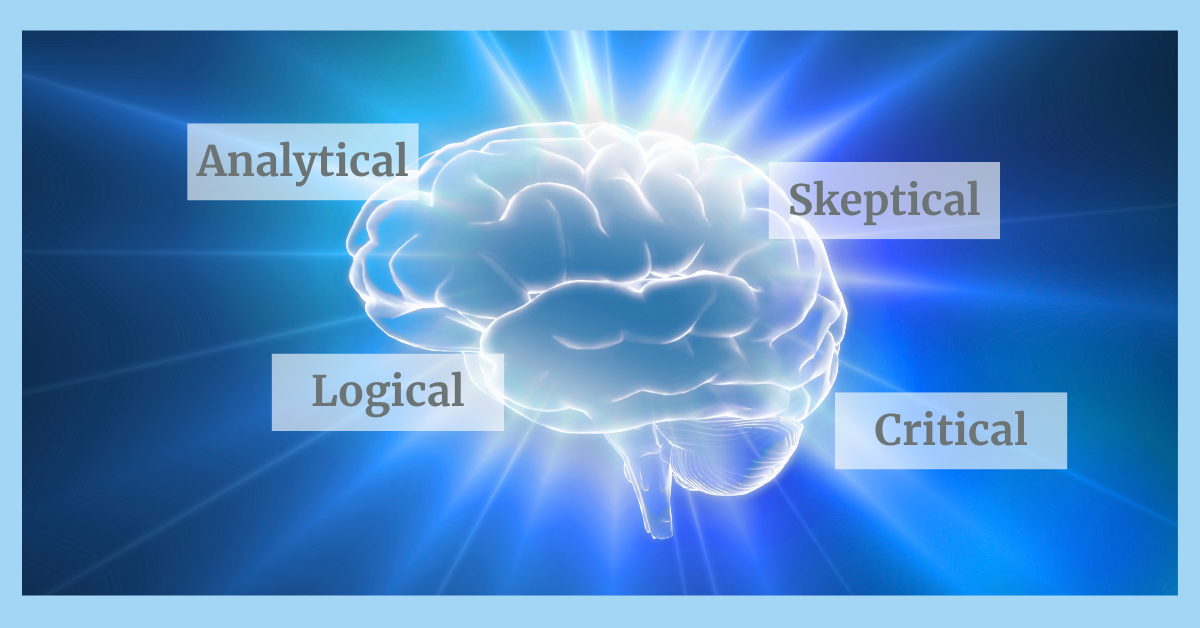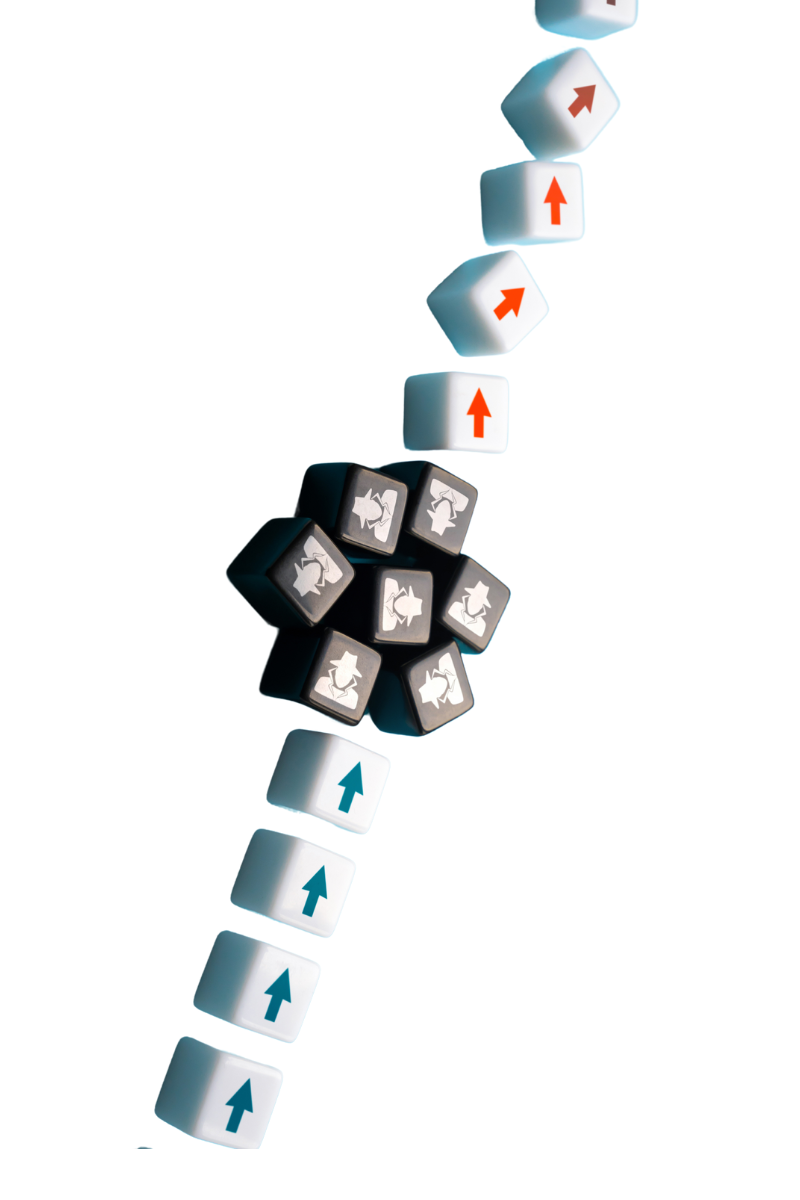When Lawyer Brain Backfires: Solutions for Effective Decision Making

Lawyer Brain is a Good Thing, Right?
What do you think of when you hear the phrase “lawyer brain?” Chances are you think of the logical and analytical mind that makes us great lawyers. But these talents and characteristics can backfire when applied to internal firm business decisions, posing a unique challenge for law firm leaders.
This article aims to do two things: elaborate on how attorneys’ cognitive wiring can both impede and enhance law firms’ internal decision making and provide practical strategies law firm leaders can apply to leverage the benefits of lawyer brains and steer their law firm to success.
What’s So Great About Lawyer Brains?
Our knowledge, training, and experience, combined with natural talents and aptitudes, make us successful in the courtroom and the boardroom. Here’s how those same abilities can make it harder for law firm leaders to make decisions on law firm strategy, not to mention making it harder to get buy-in for those decisions.

Skepticism & Analytical Thinking
Lawyers are trained to question assumptions, challenge arguments, and critically analyze information. However, this skepticism and analysis can pose challenges in collaborative settings when lawyers are trying to reach agreement or consensus on a plan of action.
Preference for Precedent (or the Status Quo Bias)
Lawyers (and most other people, for that matter) often have a preference for maintaining current practices. It’s a combination of “if it ain’t broke, don’t fix it” and “we’ve always done it this way.” Add in a smattering of following precedent, and you have a powerful way of blocking innovation and adaptation.
Risk Aversion
Underlying reliance on precedent is lawyers’ low tolerance for risk. In a world marked by rapid change, excessive risk aversion however, can impede adaptability. Law firms that fail to adapt or take calculated risks will find themselves falling behind law firms that recognize the value of experimentation and innovation.
Autonomy
It’s no secret that lawyers value independence of thought and action. We are wary of changes imposed from “on high” and often object to any initiatives we feel threatens our independence. This reinforces law firm silos and makes lawyers resistant to collaborative decision making.
Lawyer-splaining
“It depends.” How often have you said that over your legal career? If you’re like most of us, too many times to count. We like to provide details and context to make our words as accurate as possible. (And not, as non-lawyers often guess, just to hear ourselves talk.) And, as anyone who has handled a breach of contract matter, precise and unambiguous language can make all the difference. Overemphasis on words and details can hinder the free flow of ideas, stifle creativity, and shut down open dialogue – all of which makes it more difficult to find solutions.
Turning the Tables: Using Lawyers’ Talents to Enhance Internal Decision Making

Now for the good news. Lawyers’ brains are not only good for making decisions for our clients, they’re also useful for internal decisions.
Informed Decision Making Lawyers’ abilities to dissect complex issues, identify key facts, and analyze alternatives are crucial when making informed decisions, particularly in high-stakes scenarios.
Thorough UnderstandingLawyers’ attention to detail and methodic analysis ensures that potential risks and benefits are identified and evaluated.
Diverse Perspectives Autonomous lawyers may be more likely to voice their unique viewpoints, potentially leading to more well-rounded decisions.
Vetting for Value Persuading lawyers to do things differently requires leaders to answer the question “what’s in it for me.” Initiatives must make work better, easier, and/or more efficient in a way that elevates individual attorneys’ practices and enhances overall profitability.
Strategies to Enhance Law Firm Decision Making
There are many ways law firm leaders can maximize the upside of lawyer thinking. Here are just a few:

Add Structure
I don’t mean add more overhead or layers of bureaucracy. I mean using a framework that provides a systematic approach to evaluating options in consideration of the relevant factors and unique dynamics of the firm.
Double Down on Diversity
Having lawyers with differing viewpoints is a good start, but think about others who may not be obvious choices. Try including staff members who have been part of the firm for many years, newly-minted partners, or members of the biz dev team. This can provide a more comprehensive understanding of the issues and spark new ways of thinking.
Utilize Outside Facilitators
An external facilitator brings an unbiased perspective and can help navigate complex discussions, keeping them on track and decision-focused. Facilitators are also trained in the best practices across industries and have a portfolio of tools for effective decision making. They can manage conflicts, ensure all voices are heard, and document the process.
Build Decision-Making Muscle
The strategies discussed above are focused on what happens within the walls of the meeting room. But there are things law firms can do outside the room to foster easier and more efficient decision making.
Investing in continuous training and development can help lawyers become more aware of when their lawyer brains are blocking progress. Training on facilitation, structured decision making, and cognitive biases is also beneficial.
Law firms with a culture where feedback is encouraged and valued can help lawyers get comfortable with change and be more open to new ideas. Regular feedback sessions can provide opportunities for reflection and growth, putting firms on a path to better decision making.
Get Better at Decision Making & Make Better Decisions
While the cognitive traits of lawyers can pose challenges to effective decision-making, they also offer significant strengths. By understanding these dynamics and implementing strategies such as diverse perspectives, structured processes, and the use of outside facilitators, law firms can enhance their decision-making capabilities. As a facilitator, I am here to help your firm navigate these complexities and make more informed, strategic decisions.
